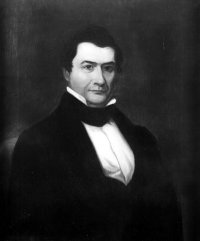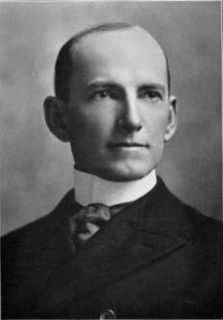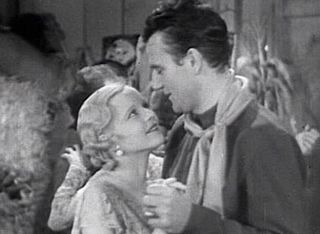Related Research Articles

Ambrose Hundley Sevier was an attorney, politician and planter from Arkansas. A member of the political Family that dominated the state and national delegations in the antebellum years, he was elected by the legislature as a Democratic US Senator.
The State of Franklin was an unrecognized proposed state located in what is today Eastern Tennessee, United States. Franklin was created in 1784 from part of the territory west of the Appalachian Mountains that had been offered by North Carolina as a cession to Congress to help pay off debts related to the American War for Independence. It was founded with the intent of becoming the fourteenth state of the new United States.

John Sevier was an American soldier, frontiersman, and politician, and one of the founding fathers of the State of Tennessee. He played a leading role in Tennessee's pre-statehood period, both militarily and politically, and he was elected the state's first governor in 1796. He served as a colonel of the Washington District Regiment in the Battle of Kings Mountain in 1780, and he commanded the frontier militia in dozens of battles against the Cherokee in the 1780s and 1790s.

David Dale Alexander, nicknamed "Moose", was an American baseball player and manager.

Austin Augustus King, also known as Austin A. King and Austin King, was an American lawyer, politician, and military officer. A Democrat, he was the tenth Governor of Missouri and a one-term United States Congressman.

Henry Prather Fletcher was an American diplomat who served under six presidents.

Richard Wilson Austin was an American politician, attorney and diplomat. A Republican, he served in the United States House of Representatives from 1909 to 1919, representing Tennessee's 2nd district. Prior to his congressional tenure, he worked as a United States Marshal from 1897 to 1906, and served as the U.S. consul to Glasgow, Scotland, from 1906 to 1907.

The Contemporary Austin - Laguna Gloria, formerly known as the AMOA-Arthouse at Laguna Gloria, is the former home of Clara Driscoll and site of a 1916 Italianate-style villa on the shores of Lake Austin in Austin, Texas. It was the original home of the Austin Museum of Art and still houses some of its collections. The building is now one of two sites of The Contemporary Austin.

Henry Edward Catto Jr. was an American businessman and public servant.

Helen Vinson was an American film actress, who appeared in 40 films between 1932 and 1945.

Lucile Ruth Browne was an American film actress. She starred opposite John Wayne in the 1935 films Texas Terror and Rainbow Valley.

The Contemporary Austin, originally known as the Austin Museum of Art, is Austin, Texas's primary contemporary art museum, consisting of two locations and an art school. The Contemporary Austin reflects the spectrum of contemporary art through exhibitions, commissions, education, and the collection. Locally, the museum is often referred to as The Contemporary.

Clara Driscoll, was a Texas-born businesswoman, philanthropist, and historic preservationist who provided the money to save the Alamo Mission in San Antonio. In 1967, a Texas Historical Marker honoring Driscoll was placed at 2312 San Gabriel Ave., Austin. In 1978, Texas Historical Marker number 1287 honoring Driscoll was placed at the Driscoll Family Mausoleum, Alamo Masonic Cemetery, East Commerce St., San Antonio.

Sir Henry Getty Chilton was a British diplomat who was minister to the Vatican and ambassador to Chile, Argentina and Spain during the Spanish Civil War.

John Ohleyer Moseley was an American educator. A Rhodes Scholar, he was a Professor of Latin at the University of Oklahoma in the 1920s. He was President of the Sigma Alpha Epsilon fraternity in the 1930s. He served as the President of Central State College from 1935 to 1939, and the University of Nevada, Reno from 1944 to 1949.

Herman Hoffman Philip was an American diplomat and career foreign service officer.
Ambrose Byron Broadbent was an American lawyer, Democratic politician, and judge in the state of Tennessee. He served as the speaker of the Tennessee Senate from 1931–33 and Secretary of State from 1937-1941.

Anne Ector Pleasant was an American school teacher and founder of the private school Pleasant Hall in Shreveport which operated for more than fifty years. Between 1916 and 1920, she was the First Lady of Louisiana and though she supported women's suffrage, she was not in favor of passage of the Nineteenth Amendment, believing voting rights were a state rather than a federal issue.

John W. Brady was an American lawyer. He served as a county attorney from 1902 to 1910, the assistant attorney general for the state, and a judge on the Texas Third Court of Civil Appeals. In 1929 he was convicted of murder, and sentenced to three years in prison.

Elizabeth Fry Page was an American author and editor associated with the South. A co-founder of the Tennessee Woman's Press and Authors' Club, she served as the Poet Laureate of the Tennessee division of the Daughters of the American Revolution (D.A.R.) and that of the Tennessee Division, United Daughters of the Confederacy (UDC). She lectured on literary, musical and philosophical subjects. Coming from a long line of literary ancestors, Page's journalistic life began early, and she worked in many branches of her profession, as a journalist, magazine editor, essayist, short story writer and a producer of verse. Page was a veteran club woman.
References
- ↑ Tennessee, Deaths and Burials Index, 1874-1955
- 1 2 "Hal Sevier: Gentleman" . The Austin American. Austin, Texas. March 13, 1940. p. 4. Retrieved April 1, 2018– via Newspapers.com.CS1 maint: discouraged parameter (link)
- 1 2 "Henry (Hal) Sevier Dies at His Home in Tennessee". The Corpus Christi Caller-Times. Associated Press. March 11, 1940.
- ↑ Department of State website
- 1 2 3 "Death Takes Hal Sevier" . Austin American-Statesman. Austin, Texas. March 11, 1940. p. 3. Retrieved April 1, 2018– via Newspapers.com.CS1 maint: discouraged parameter (link)
- ↑ "TSHA | Sevier, Henry Hulme". Handbook of Texas Online. Texas State Historical Association. Retrieved April 21, 2021.